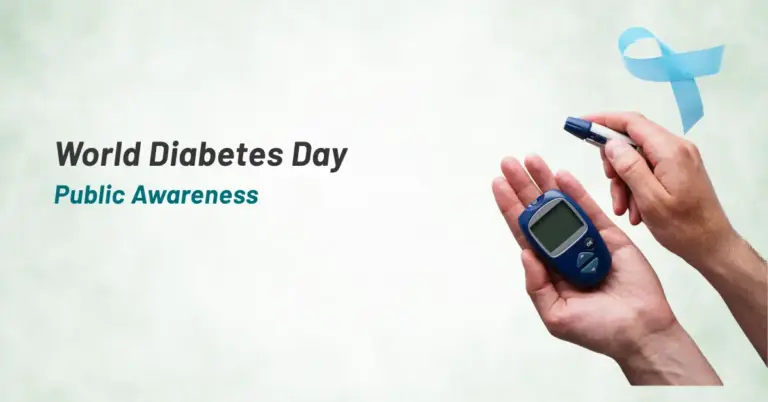Our forefathers used some empirical language about eating, such as ‘food is medicine’ and ‘eat when hungry.’ Many people nowadays eat for pleasure rather than hunger. As a result, the blood sugar level rises, and diabetes develops.Can food choices help with Diabetes?
A proper nutritious diet is necessary to control high blood sugar. Obesity is also a cause of high blood sugar levels and diabetes. A diabetic specialist at Prashanth Hospitals says, “The primary relief for obese patients affected by diabetes is diet and pills. They should strictly follow the special diet prescribed by the doctors. A significant weight loss should be achieved first through diet and exercise.” For this, doctors are now recommending a special diet called Intermittent Fasting. And if some people do not lose weight through primary treatment such as medicine, pills, diet, and exercise, they can lose weight by performing bariatric surgery. With this, their blood sugar levels will also drop.
Diabetes symptoms typically appear gradually over time. They may consist of:
- Blurred vision
- Fatigue
- Feeling very hungry or thirsty
- Increased need to urinate (usually at night)
- Slow healing of cuts or sores
- Tingling or numbness in your hands or feet
- Unexplained weight loss
What are the causes of Diabetes?
Type 2 diabetes develops when the pancreas makes less insulin than the body needs, and the body cells stop responding to insulin. They don’t take in sugar as they should. Sugar builds up in your blood. When cells don’t respond to insulin, this is called insulin resistance. It’s usually caused by:
- Lifestyle factors, including obesity and a lack of exercise
- Genetics, or abnormal genes, that prevent cells from working as they should
Restaurants attract a significant number of customers each day. Because women and housewives are now expected to contribute financially to their households, many of them order food online and have it delivered rather than squandering their time cooking. As a direct consequence of this, nourishing food is not readily available. There is a lack of hygienic food options. There are also circumstances in which you are compelled to consume foods that are detrimental to your health. For instance, if you eat a pizza, you will consume the equivalent of two days’ worth of calories in just one meal. On the other hand, we eat without giving it much thought. In addition to that, we acclimate the children to it. Weight gain is a result of not engaging in enough physical activity beginning in childhood, as well as developing a habit of eating unhealthy foods that are high in calories. If the problem of obesity develops as a result of an increase in total body weight, the performance of the insulin gland in our bodies will be negatively impacted. After a certain point, the pancreas stops producing enough insulin, which leads to fluctuations in the amount of sugar in the blood. Diabetes is the result of this.
The eating patterns of some parents are written into their DNA and can be easily passed down to their children and grandchildren. Following in the footsteps of their parents, they do not engage in any form of physical activity and continually consume foods that are high in calories and contribute to weight gain, which in turn contributes to the development of diabetes. Because of this, diabetes that occurs in parents at the age of 60, will occur in their descendants at the age of 30.How does food impact Diabetes?
Diabetes does not preclude you from eating any of your favorite foods; however, you will need to carefully monitor your blood glucose levels in order to ensure your own health and safety. A person who suffers from diabetes must understand the significance of watching their intake of calories, fat, and carbohydrates. Managing your blood glucose may be easier if you make some adjustments to the amount of carbohydrates you eat each day, but this will depend on your current eating habits. However, there is no requirement for you to make significant alterations to your diet all at once. Collect information! Perform a blood glucose test after eating a variety of carbohydrate-containing foods to determine how these foods have affected your blood glucose levels. Because of these individual differences, certain foods may have a greater or lesser impact on a person’s blood glucose levels depending on the food.What foods should be avoided if I have Diabetes?
- Sodas and Sweet Drinks
- Artificial Trans Fats
- High-carbs
- Sugar-coated Cereals
- Honey and Brown Sugar
- Processed meats
- Packaged snacks and processed baked goods
- Dried fruits
- Foods with trans fats, or high amounts of saturated fats
- Sugary foods
White bread, rice, and pasta all contain “white” carbohydrates that are essentially nutritionally worthless. Along with elevated levels of low-density lipoprotein cholesterol (the “bad” cholesterol), they can also result in blood sugar swings, weight gain, and weight loss. Simple carbohydrates that are processed, such as sugar, pasta, white bread, flour, cookies, and pastries are foods that should be avoided.
To help manage your diabetes:
- Eat regular meals and spread them evenly throughout the day
- Eat a diet lower in fat, particularly saturated fat
- If you take insulin or diabetes tablets, you may need to have between-meal snacks
- It is important to recognize that everyone’s needs are different. All people with diabetes should see a doctor and dietician for individualized advice.
Diabetes-friendly foods
Following a diabetes diet may initially seem more difficult for many people than it should be. That makes sense because finding the right food rhythm to fit your lifestyle and altering current eating habits can seem like a very, very difficult task. Consume regular meals and wholesome snacks throughout the day. Complex carbohydrates like brown rice, whole wheat, quinoa, oatmeal, fruits, vegetables, beans, and lentils, as well as lean proteins like beans and lentils are foods to eat for a type 2 diabetic diet meal plan. The proportions of fats, proteins, and carbohydrates in a diabetes meal plan can vary and can follow a variety of different patterns.
- The carbohydrates consumed should be low glycemic load and come primarily from vegetables
- The fat and proteins consumed should primarily come from plant sources
- Watch the amount of fat you eat and limit the amount of saturated fat by choosing lean meats and healthy fats.
- Fiber, fat, and protein help slow digestion and absorption of glucose from carbs, so your blood glucose will rise more slowly after a meal.
Foods with low glycemic load (index) raise blood sugar modestly and thus are better choices for people with diabetes. Nutrition is an integral part of diabetes care. Base meals on high fiber, low GI carbohydrate foods such as wholegrain bread and cereals, beans, lentils, vegetables, and fruits.Rather than a restrictive diet, a diet suitable for diabetes is simply a healthy eating plan that is individualized according to your requirements and lifestyle.
Controlling diabetes may entail controlling other aspects of your life. For example, even if you eat healthier foods, if you do not portion control your meals, you may gain weight. Proper rest (on a nightly basis!) can lower cortisol levels, lower blood sugar levels, and aid in weight management. After a meal, take a quick walk or engage in some other physical activity. Physical activity aids in the burning of glucose following a meal. Even 5-10 minutes can help lower blood glucose levels or prevent a spike in blood glucose.How can I prevent Type 2 diabetes?
You can prevent or delay Type 2 diabetes by:
- Eating a healthy diet
- Exercising
- Losing weight
- Regular checkups and screenings with your healthcare provider to help you keep your blood sugar levels in check.
Eat Healthy, Prevent Diabetes
Following a diabetes diet, fortunately, does not imply giving up the pleasure of eating or avoiding favorite foods and special family meals. You can still have “pizza night,” celebrate birthdays and anniversaries, and eat holiday and vacation meals. This is more about your daily routine, food choices, and meal preparation. Weight management will be crucial in your fight against diabetes, so make sure to carefully follow your doctor’s instructions. Healthy eating is the same for people with diabetes as it is for everyone else. You don’t need to prepare separate meals or purchase specialty foods, so sit back and enjoy healthy eating with the rest of your family.
The latest therapeutic advances for diabetes early diagnosis, treatment, and prevention are available at Prashanth Institute of Diabetology. Diabetes Education and Counseling, Diabetes Master Health Check, Medical Nutritional Therapy, Diabetes Neuropathy & Peripheral Vascular Screening, Diabetes Retinopathy, and Diabetes Foot Study are just some of the services we provide.





